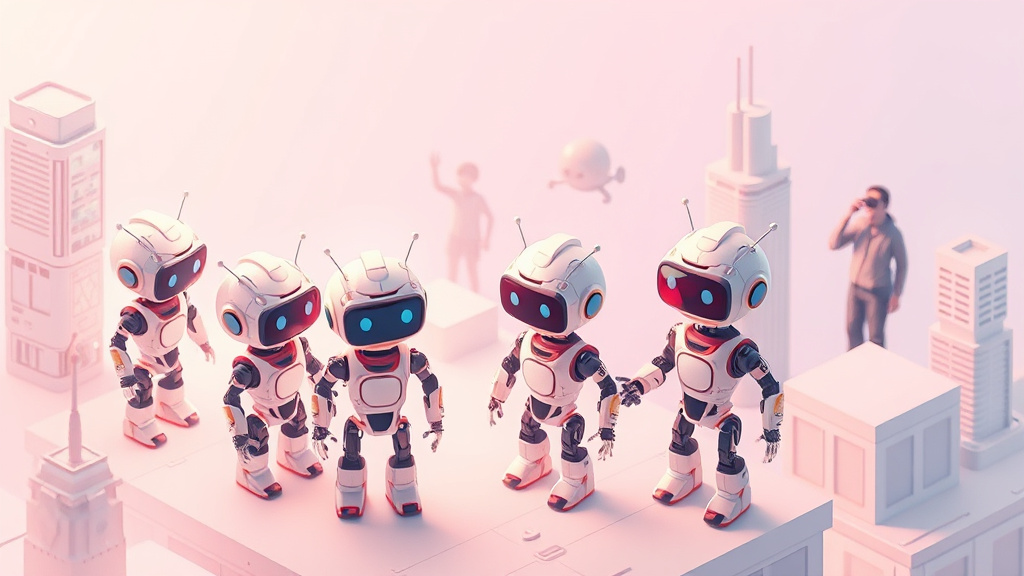The world of artificial intelligence is rapidly evolving, with new developments and innovations emerging every day. From AI-powered assistants to AI-driven security platforms, the potential applications of this technology are vast and varied. As we move forward into a future where AI is increasingly integrated into our daily lives, it's essential to stay informed about the latest advancements and breakthroughs.
Meta AI Ambitions
Meta CEO Mark Zuckerberg has announced that 2025 will be the year an AI assistant hits 1 billion users, and he wants it to be Meta AI. The company is set to revamp its content moderation policies, restructure its workforce, and boost its investment in artificial intelligence. Meta plans to implement a crowd-sourced “Community Notes” system, inspired by the model used by Elon Musk’s X, to provide contextual information for posts that might be misleading. However, critics argue that these moves risk undermining the safe spaces many users depend on and could potentially lead to increased online harassment.
China's PLA Using DeepSeek AI
China's PLA is using DeepSeek AI for non-combat support functions, including providing treatment plan suggestions to support doctors in PLA hospitals. The AI model is being used in conjunction with human medical professionals to enhance patient care. Analysts expect the AI models to find imminent application in battlefield intelligence surveillance and decision-making by the Chinese military. The use of DeepSeek AI in PLA hospitals has raised concerns about patient privacy and data security, with all data being stored and processed on local servers.
AI as Cognitive Superpower
Reid Hoffman, tech billionaire and co-founder of LinkedIn, believes that AI will empower humanity by giving them 'cognitive superpowers.' He argues that the discourse surrounding AI often takes an unfairly pessimistic tone and that AI will enhance human agency rather than taking it away. Hoffman sees the future of AI as a 'Cognitive Industrial Revolution,' which will bring about significant changes and challenges, but ultimately increase human agency. He urges professionals to adapt to AI tools and sees them as the new normal.
Military Uses of Artificial Intelligence
Lt Gen Jack Shanahan, USAF (Ret.), discusses the military uses of artificial intelligence, highlighting the potential benefits and challenges of AI in the military. He notes that AI is not yet at the level of human intelligence and that there are still significant technical and ethical challenges to be addressed. Shanahan emphasizes the importance of considering the intersection of law and AI, and the need for lawyers and ethicists to be involved in the development and deployment of AI systems. He also highlights the potential risks of fully autonomous systems and the need for human oversight and control.
Human-Level AI
Nathan Myhrvold, Microsoft pioneer, believes that human-level AI is just a few 'miracles' away. He notes that AI still lacks the ability to create new abstract concepts and reason about them, but predicts that this challenge will be overcome. Myhrvold compares the current state of AI to the personal computer industry in the 1980s and believes that AI has the potential to bring about significant innovations and improvements in various fields.
AI Arms Race
The AI arms race is sparking innovation and raising concerns about quality and privacy. The US has invested $12 billion in AI technology, while China has created an $8.2 billion AI investment fund. Experts argue that the competition is driving innovation, but also poses risks, such as the potential for AI models to be inaccurate or biased. There are also concerns about the loss of human labor and the need for comprehensive legislation to protect data privacy.
AI in Healthcare
AI is being used in healthcare to reshape hospital care, but human nurses are pushing back. AI nurses are being used to monitor patients' vital signs, flag emergency situations, and trigger step-by-step action plans for care. However, nurses argue that this technology is overriding their expertise and degrading the quality of care patients receive. There are also concerns about the potential for AI to replace human nurses and the need for careful consideration of the role of AI in healthcare.
AI Security Platform
GOST has introduced a new AI security platform, GOST Specter Ai, which leverages artificial intelligence to provide advanced facial recognition, object identification, and GPS location tracking. The platform is designed to provide vessel owners with real-time situational intelligence and allow them to proactively detect threats. The system is compatible with existing GOST XVRs and most third-party IP camera networks and can be controlled through an intuitive app.
Key Takeaways
- Meta AI is expected to hit 1 billion users in 2025.
- China's PLA is using DeepSeek AI for non-combat support functions.
- AI is believed to empower humanity by giving them 'cognitive superpowers.'
- The military uses of artificial intelligence pose significant benefits and challenges.
- Human-level AI is predicted to be just a few 'miracles' away.
- The AI arms race is driving innovation, but also poses risks.
- AI is being used in healthcare, but human nurses are pushing back.
- A new AI security platform has been introduced to provide advanced facial recognition and object identification.
Sources
- Zuckerberg Says 2025 Will Be The Year An AI Assistant Hits 1 Billion Users—And He Wants It To Be Meta AI
- How China’s PLA is gearing up to use DeepSeek AI models in actual combat
- AI won't threaten jobs—it'll give us cognitive superpowers: LinkedIn co-founder
- Podcast: Lt Gen Jack Shanahan, USAF (Ret.) on “The Military Uses of Artificial Intelligence”
- Reid Hoffman: ‘Start using AI deeply. It is a huge intelligence amplifier’
- Human-level AI is just a few ‘miracles’ away, Microsoft pioneer Nathan Myhrvold says
- AI arms race sparks innovation, raises quality, privacy concerns
- As AI nurses reshape hospital care, human nurses are pushing back
- GOST Introduces New AI Security Platform
